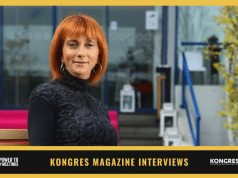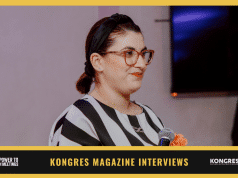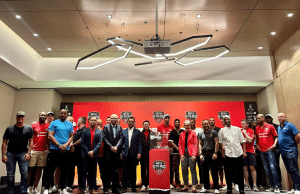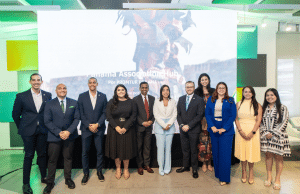PERSONAL PRESENTATION
After graduating with a Masters degree, Steve began as a sales person for a medical company. 3 years later, he set up his own corporate event agency, Barranco. For the next 20 years, Steve was organising conferences, meetings, incentives and team building events all over the world. In 2009, he wrote down his experiences in the book entitled “Secrets of Effective Meetings and Events”. Besides being a meeting planner, he is also now a trainer and a speaker.
1- What are the key skills (competencies) of the successful meeting planner?
We have an expression here in Belgium: ‘A devil can do it all’. That means a person who has many different skills. That’s exactly what a successful meeting planner should have. The last section of my book is dedicated to an overview of these skills: management, creativity, communication, organization, financial and software skills. On top of that, he or she, needs a strong physical condition too and a good dose of emotional competence. And last but not least: extended product knowledge. So, it’s my advice to planners to constantly try to improve and update their skills, even after being in the business for many years. In my book, they can find a tool to work on these skills.
2- What is essential for successful M&E management?
I use to group these essentials into ‘the 5 laws of successful M&E management’. First is the law of ‘focus’. The planner should select every item for the meeting in view of and focused on the ‘why’ of the meeting. Second comes the law of ‘preparation’. 90% of success in this business is related to meticulous preparation. We never get a second chance in this business, so no mistakes are allowed. Next is the law of ‘discipline’. In other words: a meeting isn’t over until it’s over. Especially for multi day meetings, it’s important to keep yourself and your team disciplined and focused till the very end. Next comes the law of ‘check-and-check-again’. Never take a reservation or an action for granted. Check it over and over again, and in time, before you need it. The last law is the ‘bird’s-eye view’. Meeting planners are managers. They are there in the first place to have an overview of the whole meeting. When they get bogged down in details, they will loose the essence.
3- Can you give us some advices on how to save money and time when organizing M&E?
Communication! Definitely, effective communication! If all the people involved in the preparation of the meeting optimize their communication, everything can be done in half the time. Before sending out a mail, before starting an action, the planner should think about how to communicate, both in writing and orally. And you must think about the essence that needs to be included in that communication: nothing more, nothing less. Furthermore, communication needs to be 100% accurate, from the first shot. Nothing is more embarrassing than having to call an official invitation mail back because the stated date was wrong or even forgotten. This happens more often than you would believe. And minimize the use of e-mail. Be short and avoid the ‘cc’ whenever possible. At lastly: keep the meeting short and focused. Many companies have too many ‘reunions’. I call it ‘reunitis’. It’s a disease.
4- How can knowledge from other sciences and businesses be of value for meeting planners?
Meetings management involves many dimensions. There is a big overlap with existing sciences and businesses. We can learn from what others have already tested or discovered. We should keep our eyes and ears open and learn from e.g. what tips and tricks the movie industry uses when it wants to keep the attention of an audience. And let’s find out what communication and creativity specialists can teach us, such as Allan and Barbara Peace when it comes to making PowerPoint effective. Furthermore, a knowledge of body language, photography, public speaking, gastronomy and people management can all be of added value to the meeting planner. Let’s peek over the fences of the meeting world and steel with our eyes.
5- Do you think that virtual conferences, meetings and events (Avatar and meeting industry) are our future? If so – why?
It may sound rude, but my answer is a definite ‘no, they aren’t’! Let me put is this way: Can you survive with virtual food? I don’t think you can. It’s is a ‘physical’ action by definition. Meetings are the same: they allow humans to physically confront with the energy, the motivation, the body language and the know-how of other human beings in the meeting. It’s like dating on the internet: you can stay virtual for a long time, but eventually the day comes to step into reality, meet the other person and see just how the energies will mix – or clash. To meet is a basic need of human beings, as is eating and drinking. The only added value that I believe pixels on a screen can deliver, is sharing cold know-how, facts and figures.













